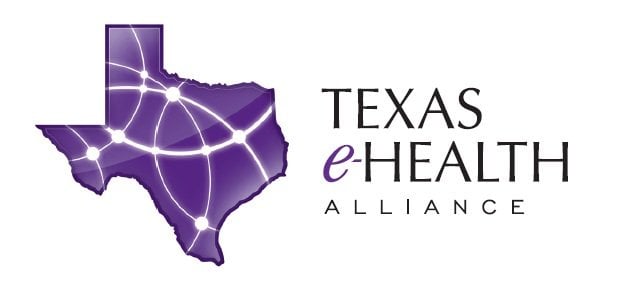Health Innovation Exchange Participants
Read the event details here.
Austin Community College
Nursing’s Under-Represented Students in Education (NURSE Success) Project
The Austin Community College’s (ACC) Nursing’s Under-Represented Students in Education (NURSE Success) Project increases the proportion of ethnic/racial minority and disadvantaged students who apply, are admitted to, and graduate from the associate degree nursing program of ACC in Austin, Texas.
The Project increases Central Texans’ access to a diverse professional nursing workforce. Imbedded in the Project are interventions that increase the cultural competence of all ACC nursing program graduates to ensure nursing care is delivered in a more culturally sensitive/competent manner. The Project spans eight-county areas surrounding the Texas state capital, where minorities comprise some 42 percent of the population, but only 16 percent of the professional nursing workforce. This disparity is a barrier to achieving a health care delivery system that serves all aspects of the local population equitably.
Presenter:
Pat Recek, MSN, RN
Assistant Dean Health Sciences, Austin Community College
Children’s Optimal Health
Geo-mapping Proprietary, Person-Level Data to Identify Neighborhoods of High Risk for Negative Health Outcomes for Children
Children’s Optimal Health (COH) is a collective leadership initiative that unites the efforts of Central Texas organizations in promoting community change to help children reach a brighter future. The collaborative, including Seton Healthcare Family, St. David’s Hospital System, Central Health, the Austin Independent School District and others, came together for the purpose of developing a method of understanding the needs of the community and determining how best to address them. COH strives to give health care providers, social service agencies, and communities access to legally compliant, de-identified proprietary data by using GIS (geographic information systems) mapping to illuminate issues involving Central Texas children. By layering data from multiple sources, COH can help communities visualize the health of their neighborhoods, identify assets and needs, and unearth opportunities for collaborative change.
Presenter:
Maureen Britton
Executive Director, Children’s Optimal Health
CHRISTUS Health
Community Based Automated Referral for Care Coordination
The Coastal Bend Diabetes Community Coalition seeks to improve the health and wellness of the at-risk and identified diabetic community of Nueces and surrounding counties through a partnership among healthcare, educational and service institutions. Collaborative care for diabetic patients must go beyond the clinical setting to include social support, such as education, nutrition, behavioral and family engagement. In partnership with CHRISTUS Health, the Coastal Bend Diabetes Community Coalition developed a virtual care team and referral network that includes community health workers, diabetic educators, social service agencies, and other professionals to support diabetic patients in effectively managing their condition.
Presenter:
Hank Fanberg
Technology Advocacy, Information Management, CHRISTUS Health
Lone Star Circle of Care
Utilization of Health Information Technology to Achieve NCQA Patient-Centered Medical Home Status
Lone Star Circle of Care (LSCC), a nonprofit, Federally Qualified Health Center network of 26 clinics spanning three Central Texas counties, has long recognized the important role health information technology (HIT) plays in providing responsive, accessible health care to the medically underserved. LSCC has leveraged its HIT capabilities, including its use of the NextGen Practice Management and NextGen Ambulatory EHR systems and its participation in the Integrated Care Collaboration, a local health information exchange, to build an integrated, coordinated health home model that streamlines the service delivery processes, demonstrates significant cost-savings, improves the provision of evidence-based care, and reduces primary care-preventable emergency room visits and health disparities.
Presenter:
Tamarah Duperval-Brownlee, MD, MPH
Chief Medical Officer, Lone Star Circle of Care
North Texas Specialty Physicians
SandlotConnect®
North Texas Specialty Physicians (NTSP), an independent physician association (IPA) with over 600 primary care and specialty physicians, implemented a health information exchange (HIE), SandlotConnect®, to advance the coordination of care delivery by providing physicians real time patient information at the point of care. SandlotConnect® contains approximately 2,000,000 patient records and is integrated with over 350 physician EHRs, 12 hospitals spanning 7 counties, and other community healthcare providers. NTSP’s HIE implementation assists its physicians in care coordination and quality management activities, reduces healthcare costs, improves overall physician and patient satisfaction, and positions the IPA to succeed as an Accountable Care Organization.
Presenter:
Kristy Mouser
Regional Vice President, Business Development, Sandlot, LLC
Seton Healthcare Family
Hand-over-Hand Healthcare ? from Hospital to Home
Seton’s Virtual Transition Center is a post-acute care management electronic platform that transitions patients from the hospital to care in their home. The Center leverages its resources to determine appropriate interventions and follow-up, creating efficient and effective transitions of care. By aligning and coordinating the health care delivery system, Seton Healthcare Family improves patient quality of life and lowers the overall cost of care. The Virtual Transition Center works to decrease fragmentation; promote access to funding, pharmacy, and post-acute services; and facilitate changes in care plans at the Primary Outpatient Clinics and follow-up to ensure care plan efficacy.
Seton Care Plus
The Seton Community Health Centers have partnered with the Seton Health Plan for ten years to provide a “Look A Like” health benefit plan, called Seton Care Plus, for the unfunded enrollees of the Seton clinics. Seton is able to aggressively and actively manage the care of 5,000 unfunded patients throughout the Seton Healthcare Family’s continuum of care using the technology and resources made available by the Seton Health Plans. Active case management of these patients improves health care outcomes and decreases the overall cost of these services.
Seton Comprehensive Care Center
The Seton Comprehensive Care Center is being developed to reduce the cost and improve the quality of care for the most complex and vulnerable patients in the community. The local health care system for these unfunded and underfunded patients is complicated and fragmented, and timely access to outpatient services proves a significant challenge and barrier to optimal care. Enrolled patients will be assigned to a multidisciplinary clinical team including a physician, a nurse practitioner, a nurse, a licensed clinical social worker, and multiple health coaches/promoters. The clinical team will assist enrolled patients in care coordination, provide additional resources when necessary, and educate and empower patients to better manage their own health conditions.
Presenter:
Susan Nash, LCSW
Social Work Manager, Seton Community Health Clinics
St. David’s Foundation
Philanthropic Strategies to Develop the Healthcare Workforce
St. David’s Foundation (SDF) makes strategic investments to improve the health and health care of all Central Texans, with $34 million being reinvested in 2011 as grants and direct services in Central Texas. SDF’s funding includes a multi-tiered approach to increase the number and quality of health care providers in the region. Strategies include a scholarship program for college students pursuing health professions careers, direct investment in healthcare training programs at colleges and universities, programmatic funding to support the education of non-traditional students pursuing health careers, and investments in health-related research initiatives at the University of Texas at Austin. Furthermore, SDF’s sizable investment in health information technology infrastructure in the region will help optimize the delivery of health care services in Central Texas.
Presenter:
Earl Maxwell
CEO, St. David’s Foundation
Texas State University
Health Information Technology Apprentice Program
The Health Information Technology (HIT) Apprentice Program is one part of a larger HIT Workforce Development Project. The goal of the HIT apprenticeship program is to provide intensive, real-world training for physician practice, clinic, and rural hospital HIT workers who have completed required HIT education but need valuable work experience. The apprenticeship program helps address the state’s unmet need for practical HIT workforce training in the areas of marketing and outreach; privacy, security and legal; project management; leadership and communication; and information and computer science.
Presenter:
Susan Fenton, PhD, RHIA
Assistant Professor, Health Information Management
Texas State University
The University of Texas at Austin
Innovative Curriculum Development in Health Information Technology (HIT) as a Foundation for Workforce Development and Research
In 2010, the University of Texas at Austin partnered with members of the HIT industry and healthcare organizations to design and implement an innovative nine week certificate program that equips post-baccalaureate students to enter the HIT workforce: http://healthit.cns.utexas.edu/. A unique HIT Learning Center was created to provide students with hands-on experiences with six EHR systems, and to teach workflow processes and redesign in a mock ambulatory clinic. Ninety-two percent of individuals who graduated from the inaugural class and sought employment in HIT found jobs within eight months. Generous funding for this program is provided by a university-based training grant from the ONC to the Professional University Resources and Education for Health Information Technology (PURE-HIT) consortium: http://pure-hit.health.txstate.edu/.
Presenter:
Leanne Field, PhD
Distinguished Senior Lecturer
Director, Public Health, Medical Laboratory Science and Health Information Technology Programs
The University of Texas at Austin
University of Virginia, Center for Health Policy
Grand Aides
The University of Virginia is working with the State of Texas Health and Human Services Commission to implement a law establishing in Medicaid the “Grand Aides” program, a new model of health care delivery that provides personalized care at lower cost. “Grand Aides,” are mature community members who, as part of a physician supervised team, use telephone and home visits to help treat basic medical conditions (e.g. colds). In one year, 12 Grand Aides will be trained by the Houston Community College to care for 2,500 families, with the goal of reducing unnecessary emergency room and primary care clinic visits by 25-50%, with an estimated net savings of $100,000 – $150,000 per clinic per year.
Presenter:
Arthur Garson Jr., MD, MPH
Director, Center for Health Policy
University Professor and Professor of Public Health Sciences, University of Virginia
Via Hope Recovery Institute
Recovery-Focused Learning Community (RFLC)
The Via Hope Recovery Institute promotes mental health system transformation. It helps organizations develop a culture that supports and expects recovery from mental illness and empowers the consumer, youth and family voices in this transformation process. The Recovery-Focused Learning Community, with the support of the Department of State Health Services (DSHS) and the Hogg Foundation for Mental Health, is a program designed to guide state psychiatric hospitals and local mental health centers through the process of developing or strengthening the recovery orientation of their organizations. As a tool to facilitate this cultural transformation, the Recovery-Focused Learning Community supports the development and training of peer specialists to service these organizations.
Presenter:
Tammy Heinz
Program Officer, Consumer & Family Liaison, Hogg Foundation for Mental Health
The University of Texas at Austin
BPC’s Health Project


Share
Read Next
Support Research Like This
With your support, BPC can continue to fund important research like this by combining the best ideas from both parties to promote health, security, and opportunity for all Americans.
Give Now